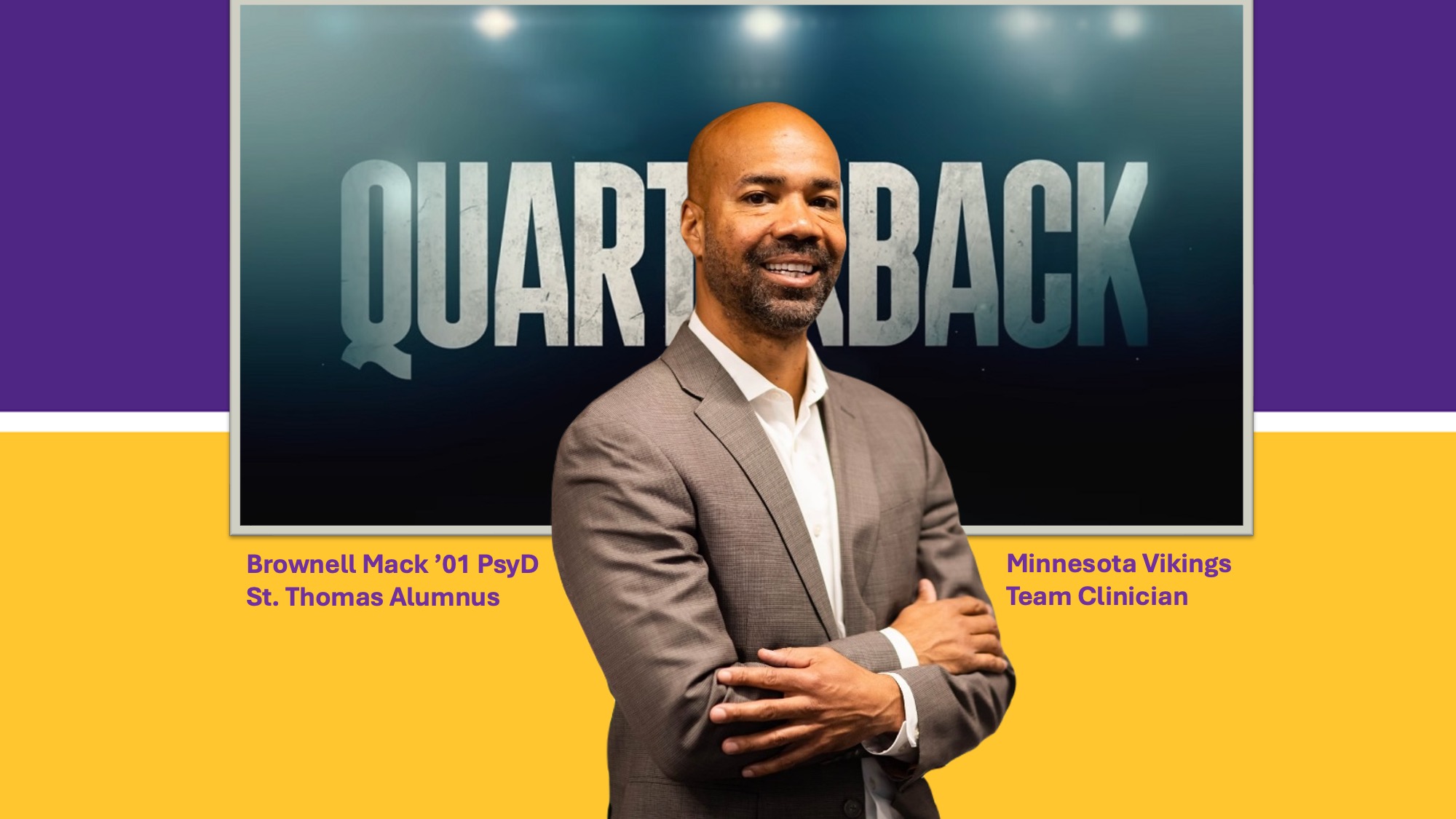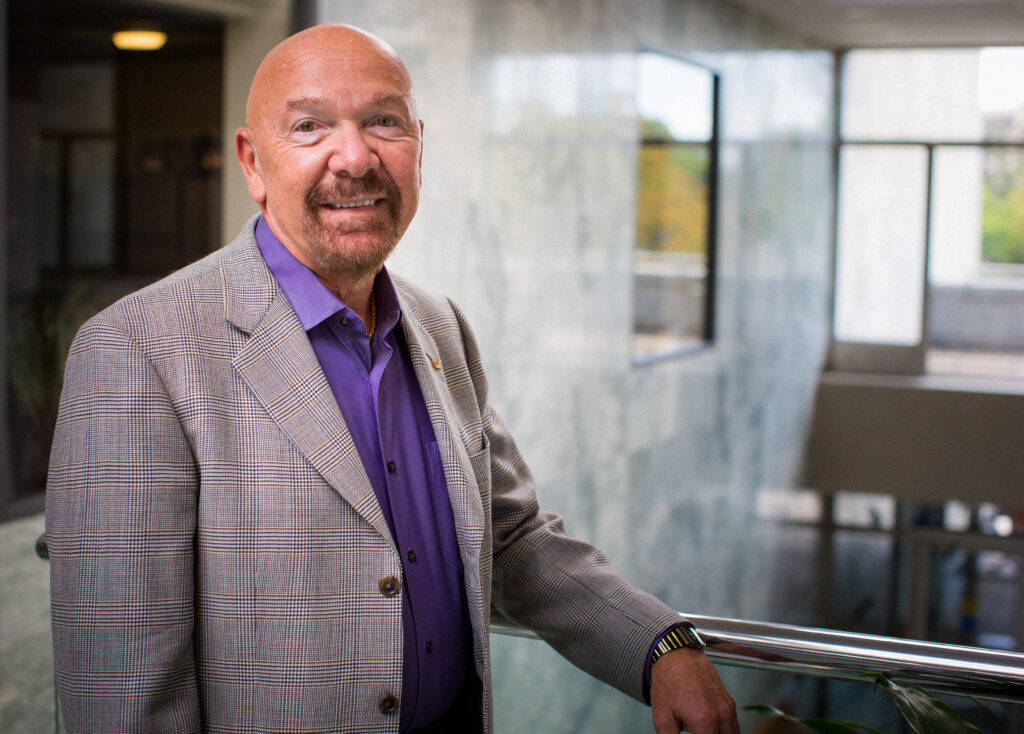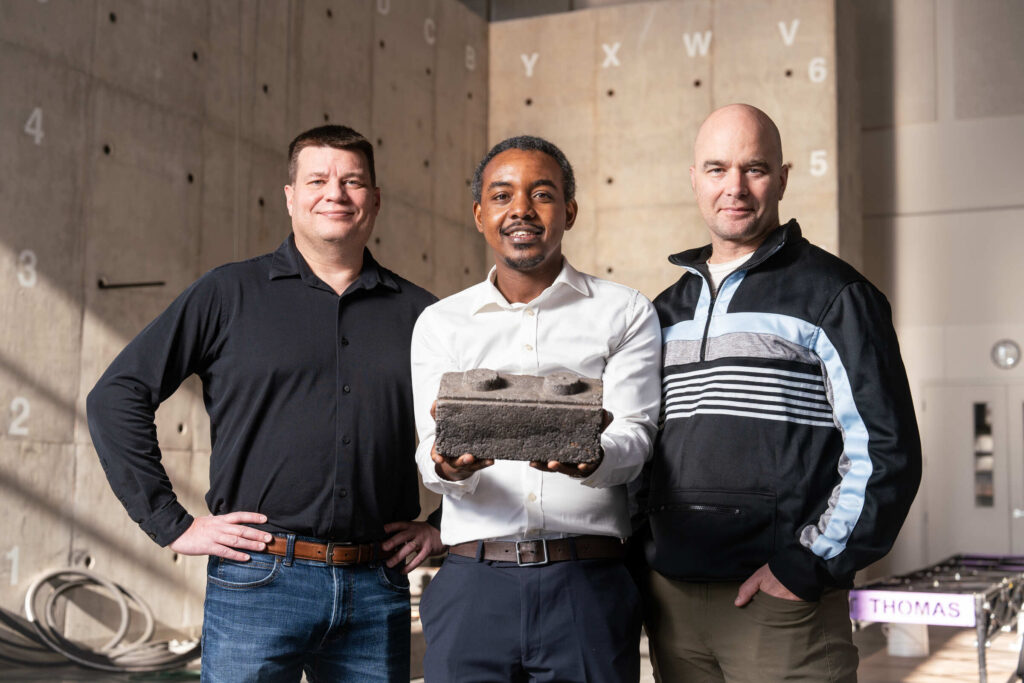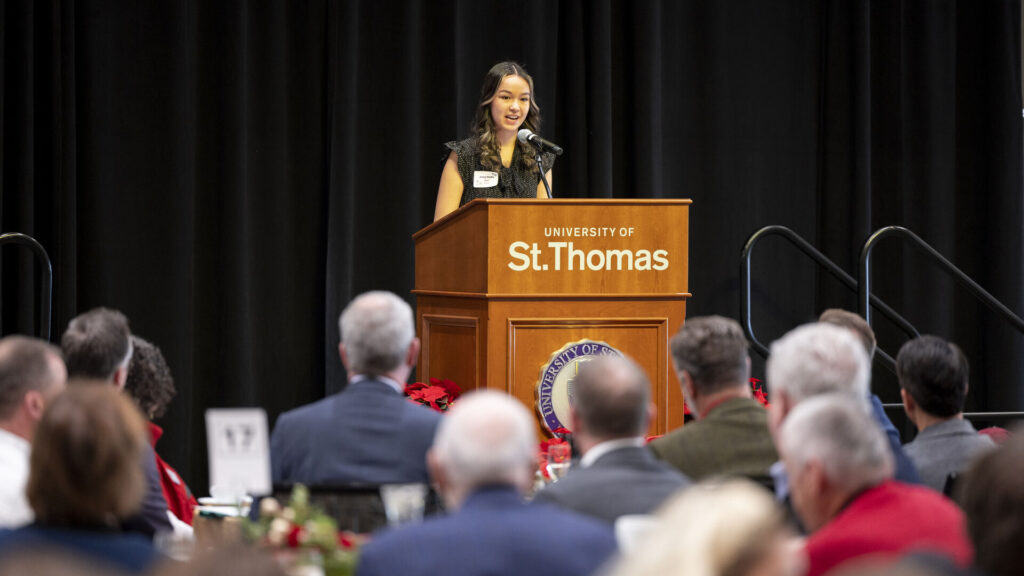Netflix’s hit show “Quarterback” made the country fall in love with Vikings QB Kirk Cousins, revealed to be a down-to-earth father. The show also shined a light on Vikings psychologist and St. Thomas alumnus Brownell Mack ’01 PsyD, who is a big part of Cousins’ game, helping the athlete strive toward being the best version of himself.
Mack described Cousins as being intentional and passionate about showcasing their sessions. “One of his hopes by allowing this kind of access was to validate people utilizing mental health services,” he said.
Mack joined the Vikings in 2019 after collective bargaining mandated NFL teams retain a mental health provider. His appointment particularly resonated with some of the Black players who expressed interest in working with a mental health professional who looked like them or had similar lived experiences.
Being able to empathize with someone else’s situation is an important aspect of being a trusted adviser, Mack said. It was a lesson he learned from the example set by St. Thomas faculty.
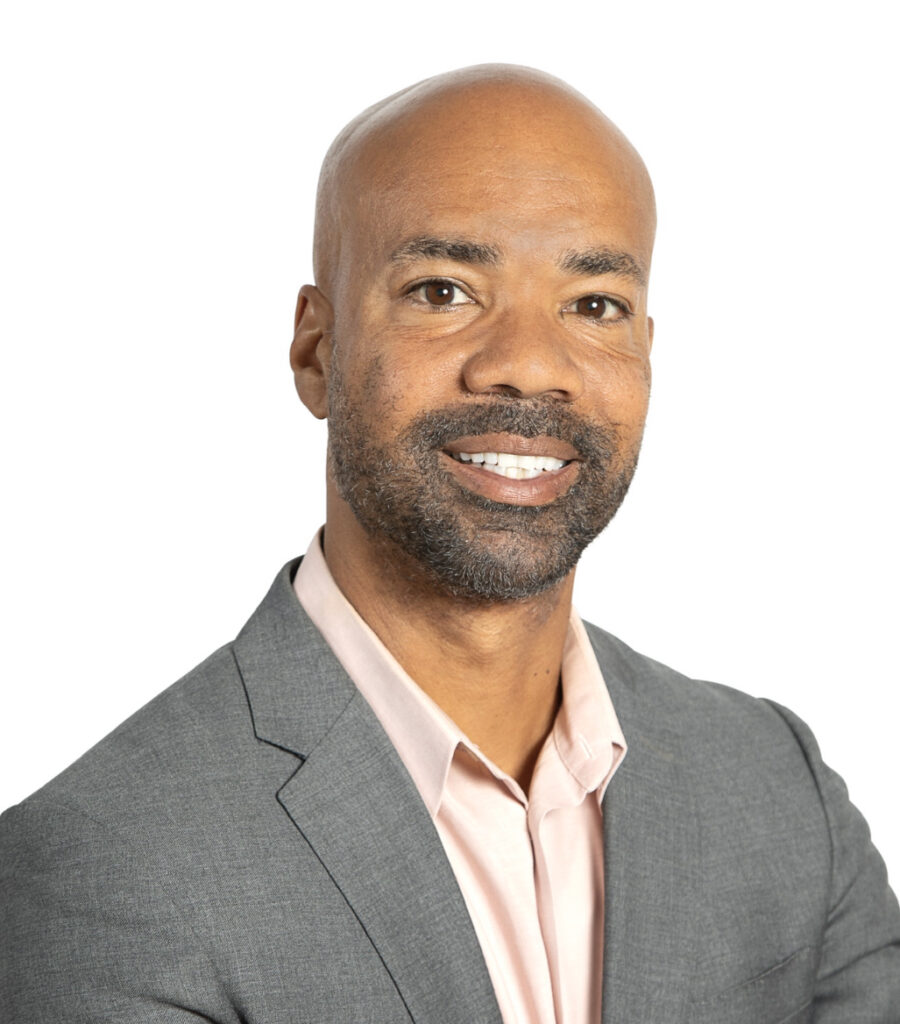
Brownell Mack '01 PsyDSt. Thomas was critical to what I’m doing now professionally and was vital to my growth as a person.”
“The faculty were much more than instructors to me. They were people who became mentors and lifelong colleagues,” Mack said. “St. Thomas was critical to what I'm doing now professionally and was vital to my growth as a person.”
One particular inspiration was Norman James, the first African American professor he had. James taught professional psychology and social work while dean of the School of Education from 1994-2004. “He was just a living, breathing example of what I could be potentially in this field,” Mack said.
“The faculty at that time saw a lot of potential in me that I probably hadn’t quite seen in myself,” Mack added. “To feel how much they believed in me and the opportunities they gave me to make mistakes and realize that those were opportunities for growth and learning, all of that was so important to my development in the field.”
While his sessions on “Quarterback” focused on mental techniques to sharpen Cousins’ attention and to maintain calm and confidence in the heat of competition, they also broadly inspired others to address their own mental health, Mack said, “especially young people who might have been on the fence and wondering is it really OK for me to not be OK.” After all, some viewers likely thought, “If Kirk Cousins is seeking those services, why wouldn't I do it too?”
One outcome of the show surprised Mack: Young people of color contacted him interested in pursuing psychology.
“It gave me a chance to connect with them in ways that people had supported me in the past,” he said.
